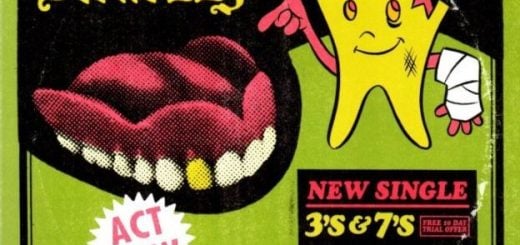I Think I Lost My Headache by Queens of the Stone Age Lyrics Meaning – Decoding the Surreal Psyche of a Rock Masterpiece
Lyrics
They called and just let it ring
No reply
The door is open I swear
Ain’t no use in pickin’ up
You know why
[Chorus]
It’s all my head I know
So they tell me so
Until my head explodes
Into my head it goes
Tastes so good
Oh, but I knew it would
Tastes so good
Burn like a match house
Medicate just to make you soft
Love is blind
Catchin’ the rest me
What the hell were they thinking of
You know why
[Chorus]
Queens of the Stone Age have always tread the fine line between the grotesque and the beautiful, the chaotic and the serene, in their brand of desert rock. None more so than in the hypnotically menacing ‘I Think I Lost My Headache’, a song that escapes simple interpretation and instead burrows deep into the listener’s consciousness.
This track, rich with enigmatic verses and relentless rhythm, intrigues and challenges the ear, inviting a closer look beyond its surface-level psychedelia. Here, we dive headfirst into the swirling vortex of its cryptic poetry and attempt to parse the profound meaning behind the turmoil.
The Ringing Absence – Why No Answer Is Also an Answer
From the very onset, ‘I Think I Lost My Headache’ grapples with themes of communication breakdown. The protagonist experiences an unanswered call, a door left ajar, a disquieting silence. What fresh hell is this abandonment, this lack of closure?
But within these neglected signals, there’s a revelation. The lack of response becomes a message in itself, a refusal or an inability to engage. There’s resignation in the air – ‘Ain’t no use in pickin’ up’ – ringing out as both a condemnation and a liberation from expectation.
Cerebral Detonation – When Your Thoughts Are Your Worst Enemy
The chorus offers no solace, catapulting us into the maelstrom of an overthinking mind – ‘It’s all my head I know.’ What seems a reaffirmation at first glance twists into a self-deprecatory admission of overanalyzing to the point of self-destruction.
Layered upon the fraught percussion and the grinding riffs, the song’s central theme blossoms into a grim flower – thoughts spiraling until they explode. The Queens deftly capture the very human trait of becoming our own saboteurs, riddled with doubts and obsessions.
The Seductive Flame – Addiction’s Allure and Desolation
Amidst the sonic assault comes a verse dripping with addiction’s duality: ‘Tastes so good / Oh, but I knew it would.’ The song flirts with the blissful highs – laced with foreknowledge of eventual destruction – that resemble a ‘match house’ ready to ignite.
And what of the medication that makes one ‘soft’? Here, the Queens play with the idea of numbness as a form of comfort, a way to avoid reality’s sharp edges. Yet in love’s blindness, there’s a somber acknowledgment of vulnerability and the consequences of seeking such solace.
A Mockery of Sanity – The Hidden Meaning Behind the Curtain
Peeling back the layers, ‘I Think I Lost My Headache’ morphs into a prescient critique of the music industry and society’s wider conformity. The lines ‘Catchin’ the rest me / What the hell were they thinking of’ may well serve as a jaded glance at how individuality is captured and commodified.
The band’s own battles with creative control and the expectations laid upon them can be felt in the song’s defiance. To lose one’s headache is perhaps an acknowledgment of giving in – or maybe a realization that one has moved past the need for external validation.
Haunting Last Echoes – Memorable Lines of Enduring Legacy
This composition unabashedly leaves its mark with a series of memorable lines that linger long after the final note has faded. ‘It’s all my head I know’ becomes a mantra for the overburdened, a dark comfort in its universality.
But it’s not just the chorus that echoes; it’s the existential dread of ‘You know why’ – a whisper that speaks volumes of resigned acceptance. These lyrics capture the zeitgeist of a generation wrestling with their demons in a world that may too often turn a deaf ear.








